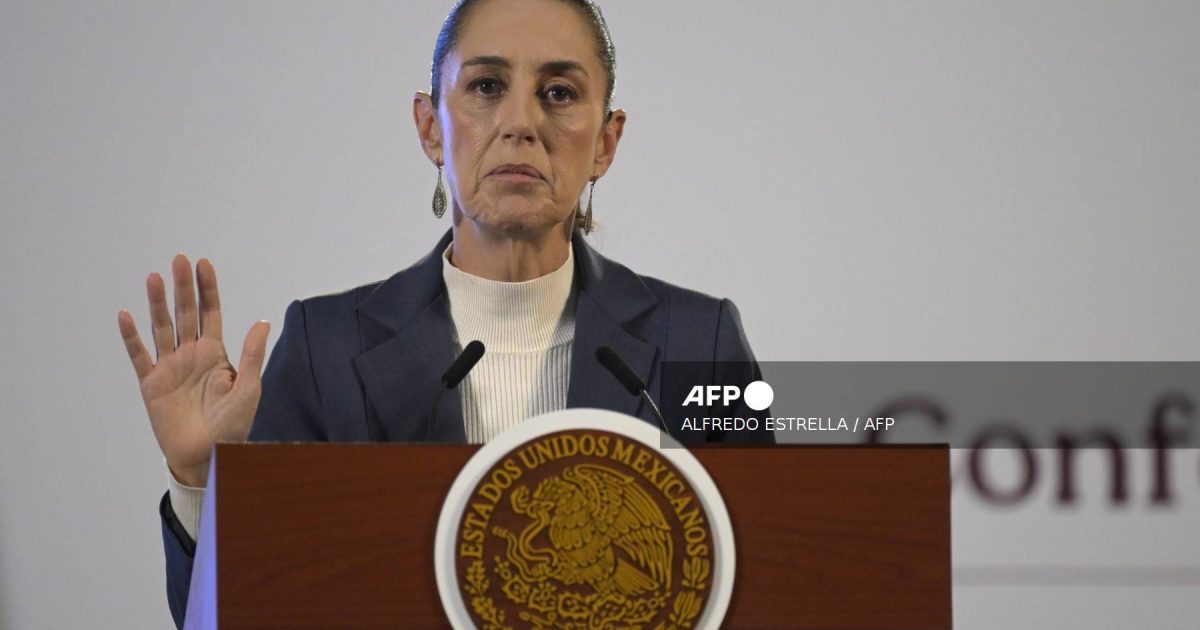Donald Trump, fresh off an election win earlier this month that capped a stunning comeback, is quickly announcing plans for an emboldened new administration.
Trump’s first term as president between 2017 and 2021 was marked by heavy turnover, and he made strategic use at times of having people serve in an acting capacity in cabinet-level positions for several months.
Cabinet positions, along with several other administration roles, generally require Senate approval. In a social media post on Nov. 10, Trump said anyone seeking to be Republican majority leader must agree not to stand in the way of temporary presidential appointments.
Yasmeen Abutaleb, a White House reporter with the Washington Post, looks at U.S. President Joe Biden’s brief meeting with incoming president Donald Trump, and explores what might come next as Trump gears up to take office again.
So-called recess appointments are a practice generally shunned since a U.S. Supreme Court ruling in 2014, and are meant to be used when the chamber has a legitimate break. At least one constitutional expert has expressed concern that Trump could be looking to circumvent challenging confirmation hearings on contentious nominees.
In addition to his cabinet choices, the fate of FBI director Christopher Wray will also be closely watched. Wray, a Republican, was appointed by Trump but has been criticized by the former president given the role of FBI agents in helping investigate cases that led to criminal indictments he faced.
Doug Collins, veterans affairs secretary

Collins, a former congressman from Georgia, is the president-elect’s choice to run the Department of Veterans Affairs.
“We must take care of our brave men and women in uniform,” Trump said in a statement Thursday.
Collins, 58, is a chaplain in the U.S. air force reserve command. The Republican served in Congress from 2013 to 2021 and helped defend Trump during his first impeachment process.
Tulsi Gabbard, director of national intelligence

Trump said on Wednesday that he had chosen Tulsi Gabbard, a 43-year-old former Democratic representative and critic of the Biden administration, as his director of national intelligence.
Gabbard, who left the Democratic party in 2022 to become an independent and was considered a possible candidate to become Trump’s running mate, would take over from Avril Haines as the top official in the U.S. intelligence community after the Republican president-elect starts his second term in January.
She is not expected to face difficulty being confirmed in the Senate, where Trump’s fellow Republicans will hold a majority of seats starting early next year.
“I know Tulsi will bring the fearless spirit that has defined her illustrious career to our intelligence community, championing our constitutional rights and securing peace through strength,” Trump said in a statement.
Gabbard has little direct experience with intelligence work and had not been widely expected to be tapped for the post.
She was deployed in Iraq from 2004 to 2005 as a major in the Hawaii National Guard and is now a lieutenant-colonel in the U.S. Army Reserves.
Matt Gaetz, attorney general

Trump on Wednesday named firebrand Republican U.S. Representative Matt Gaetz to be his nominee for attorney general.
Trump announced the decision in a post on his Truth Social network, saying that “Matt will end Weaponized Government, protect our Borders, dismantle Criminal Organizations and restore Americans’ badly-shattered Faith and Confidence in the Justice Department.”
Gaetz, 42, represents much of the Florida Panhandle and became a conservative star when he joined Congress, appearing as a frequent staunch defender of Trump on cable news.
He irked fellow Republican members in early 2023 when he filed the resolution that successfully ousted former House Speaker Kevin McCarthy. McCarthy then helped fund a primary challenge to Gaetz that included commercials alleging that he paid for sex with a 17-year-old, an allegation currently being investigated by the House ethics committee. Gaetz has denied any wrongdoing. The Justice Department ended its own sex-trafficking investigation without bringing charges against him.
Even Trump’s allies in the Senate are keeping their distance from Gaetz.
“We’ll see,” Sen. Ron Johnson of Wisconsin said when asked whether he would vote to confirm the congressman.
Sen. John Cornyn, a Texas Republican, suggested that the Senate would look closely into Gaetz, including the House ethics committee investigation.
“I’m sure it will make for a popcorn-eating confirmation hearing,” said Republican Sen. Thom Tillis of North Carolina.
Pete Hegseth, secretary of defence
Trump’s announcement of his intention to nominate Hegseth, a 44-year-old Fox News anchor, to lead the Pentagon seemed to catch even some Republican legislators off guard, with reactions on Capitol Hill ranging from “wow” to “who?” to “interesting.”
After graduating from Princeton University in 2003, Hegseth was commissioned as an infantry captain in the Army National Guard, serving overseas in Afghanistan and Iraq as well as at Guantanamo Bay. He then lobbied on behalf of Eddie Gallagher and Mathew Golsteyn, military members accused of war crimes, leading to an unprecedented intervention by a U.S. president as military tribunals were examining the allegations.
Hegseth, who has complained about “woke” diversity initiatives within the military and questioned women having combat roles, has never led a large organization, let alone one with an estimated 24,000 employees as the Pentagon. The next defence secretary confronts a tumultuous geopolitical situation that includes an emboldened North Korea, Russia’s war on Ukraine and Israel’s war with Hamas and Hezbollah, which has exacerbated already poor relations between Israel and Iran.
“I lead the Senate military personnel panel. All three of my brothers served in uniform. I respect every one of our service members,” Democratic Sen. Elizabeth Warren said in a social media post on Tuesday. “Donald Trump’s pick will make us less safe and must be rejected.”
Robert F. Kennedy, Jr., health and human services secretary

Kennedy made a presidential run as an Independent candidate in 2024, eventually suspending it and throwing his support to Trump. That has culminated in Trump announcing that he’ll make Kennedy his pick for health and human services secretary.
If Kennedy, a lawyer and anti-vaccine activist, ends up taking on that role, he’ll take charge of a massive agency that oversees everything from drug, vaccine and food safety to medical research and the social safety net programs Medicare and Medicaid.
The 70-year-old Kennedy is the son of the late U.S. senator Robert Kennedy. He’s also the nephew of the late president John F. Kennedy. Both his father and his uncle died in separate assassinations in the 1960s.
Kristi Noem, homeland security secretary

Noem grew up on a farm and interned on Capitol Hill, before serving in both U.S. and state legislatures. She was elected governor in 2019, but a memoir released this year of her life and career was criticized both for factually dubious anecdotes and her description of shooting dead a misbehaving dog.
South Dakota has one of the lowest percentages of foreign-born citizens of any state, but Noem, 52, has made asylum and irregular immigration from the southern border a preoccupation. She sent state National Guard troops for Texas’s controversial Operation Lone Star.
Noem has claimed that drugs are flooding her state due to a porous border, though federal government statistics indicate the vast majority comes through points of entry, not between them. Reporting to her could be Tom Homan, a Trump pick to lead Immigration and Customs Enforcement. Homan has spoken enthusiastically about large-scale deportations of those in the country without legal status.
U.S. president-elect Donald Trump has named Tom Homan, the former U.S. Immigration and Customs Enforcement director, in charge of the nation’s borders. Homan was widely expected to be offered a position related to the border and Trump’s pledge to launch the largest deportation operation in the country’s history.
John Ratcliffe, CIA director

Ratcliffe, a 59-year-old U.S. attorney in the George W. Bush administration serving the Eastern District of Texas, was a congressman from the state for five years. Once rejected as a nominee for director of national intelligence in 2019 after bipartisan Senate criticism over his lack of experience and some questionable claims on his resumé, he was confirmed by the chamber several months later.
He faced criticism just weeks before election day in 2020 for declassifying Russian intelligence alleging damaging information about Democrats while acknowledging that it was unverified. While Democrats decried the move as a partisan stunt that politicized intelligence, even former Trump defence secretary Mark Esper suggested in his 2022 book A Sacred Oath that it was inappropriate.
Marco Rubio, U.S. secretary of state

Trump said Wednesday that he would nominate Rubio, a veteran Republican senator from Florida, to be his pick for U.S. secretary of state.
The 53-year-old Rubio supported Trump during his presidential run, and reportedly had been in the running to be the president-elect’s running mate. The two men had a more adversarial relationship in the past.
The conservative lawmaker is a noted hawk on China, Cuba and Iran.
On Capitol Hill, Rubio is the vice-chairman of the Senate intelligence committee and a member of the Senate foreign relations committee.
Elise Stefanik, ambassador to United Nations

Stefanik, a Republican House member since 2014, appeared skeptical of Trump initially but over time became one of his most vociferous supporters. She was among many Republicans who objected to the certification of Joe Biden’s 2020 election win; she is also one of very few who have mimicked Trump’s description of defendants charged and sentenced in the 2021 Capitol riot as “hostages,” seeming to indicate they were political prisoners.
Stefanik, 40, saw her profile rise after the Israel-Hamas war for her aggressive questioning of American university presidents over antisemitism on their campuses. She has gone as far as calling last month for a “complete reassessment” of U.S. funding for the United Nations, and could be viewed with suspicion at the UN by some countries in the Middle East after helping push for the blocking of American support for United Nations Relief and Works Agency for Palestine Refugees (UNRWA).
Lee Zeldin, environmental protection agency administrator

Zeldin, 44, who ran for governor of New York in 2022, previously served eight years in the House of Representatives and was among the Republicans in Congress who voted against certifying the 2020 election results. He did not serve on any House committees with oversight of environmental policy and had a low lifetime score of 14 per cent from advocacy group the League of Conservation Voters during his eight years in Congress.
Trump is in favour of boosting production of fossil fuels such as oil, natural gas and coal, the main causes of climate change. He has vowed to end subsidies for wind power that were included in legislation signed by U.S. President Joe Biden two years ago.
In his first turn as president, Trump rolled back more than 100 environmental laws and regulations.
Chris Wright, energy secretary
CEO of Denver-based Liberty Energy, Wright is a vocal advocate of oil and gas development, including fracking, a key pillar of Trump’s quest to achieve U.S. “energy dominance” in the global market.
Wright has been one of the industry’s loudest voices against efforts to fight climate change and could give fossil fuels a boost, including quick action to end a year-long pause on natural gas export approvals by the Biden administration.
He has criticized what he calls a “top-down” approach to climate by liberal and left-wing groups and said the climate movement around the world is “collapsing under its own weight.”








